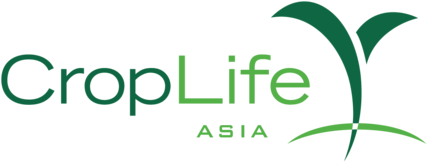CropLife Asia echoes FAO call for Zero Hunger this World Food Day

Singapore, 16 October 2018 – CropLife Asia and the plant science industry voiced strong support this World Food Day for the Food and Agriculture Organization of the United Nations (FAO) in its call to eradicate hunger by 2030 and heralded the innovations of plant science technologies as a critical tool in realizing this ambitious goal.
According to the latest FAO 2018 State of Food Security and Nutrition in the World report, world hunger is on the rise again, with an estimated 821 million people suffering from chronic food deprivation. In Asia alone, the projected Prevalence of Undernourishment (PoU) is 11.4 percent, representing more than 515 million people[1]. The FAO report also reveals the paradox of how food insecurity is associated with undernutrition as well as both overweight and obesity. The higher cost of nutritious foods, the stress of living with food insecurity, and physiological adaptations to food restriction are all factors that help explain why food insecure families have a higher risk of overweight and obesity.
Implementing and scaling up interventions that can guarantee access to nutritious foods will help break the intergenerational cycle of malnutrition – an area in which the plant science industry can participate. The plant science industry is committed to work with governments in Asia for greater investments in agriculture by providing smallholder farmers access to agricultural tools that help drive sustainability such as plant biotechnology and crop protection.
“Ensuring there is a safe, sustainable and nutritious food supply to feed a growing Asia and world is a dilemma that calls for shared commitment and a shared solution – that’s true on World Food Day and every other day,” said Dr. Siang Hee Tan, Executive Director of CropLife Asia. “On behalf of CropLife Asia and the region’s plant science industry, we applaud the FAO call to end hunger by 2030 and stand shoulder-to-shoulder with our fellow regional food value chain stakeholders in this critically important cause. The game-changing technologies of plant science can play an increasingly crucial role in a truly shared solution – and in meeting the 2030 goal together.”
Golden Rice is one such complementary intervention to address vitamin A deficiency (VAD). A new type of rice that contains beta-carotene which is converted to vitamin A as needed by the body and gives the grain its golden color, Golden Rice is developed through genetic engineering and can be grown just like ordinary rice. With two-thirds or more of the daily caloric intake of south and southeast Asian countries being obtained from rice, Golden Rice can help in the fight against VAD, particularly among the people who depend mostly on rice for nourishment. Golden Rice is currently undergoing regulatory applications in the Philippines and Bangladesh.[2]
One major challenge of achieving Zero Hunger is the impact climate change has on crop production. Data from International Service for the Acquisition of Agri-biotech Applications (ISAAA) 2017 report indicated that climate change may cause a 23 percent decline in major crop production such as maize, wheat, rice and soybeans by 2050 and that protein content of staple crops such as rice will also be reduced by 7.6 percent due to climate change.[3] Adoption of biotech crops is seen as an effective solution as crop varieties may be developed in a timely manner through modern methods of molecular biology and biotechnology to cope with salinity, submergence and drought as well as insect pests and plant pathogens.
Meanwhile, crop protection products are an important tool to help farmers grow more food on less land and raise productivity per hectare. Farmers are better enabled to produce abundant, safe, quality foods at affordable prices because of crop protection products. Without them, nearly 40 percent of global rice and maize harvests could be lost every year[4] and losses for fruits and vegetables could be as high as 50-90 percent.
[1] FAO 2018 The State of Food Security and Nutrition in the World
[2] International Rice Research Institute (IRRI) Golden Rice
[3] International Service for the Acquisition of Agri-Biotech Applications (ISAAA) Brief 53 – 2017
[4] Oerke, E.C., 2006, “Crop losses to pests,” Journal of Agricultural Science, vol. 144
About CropLife Asia
CropLife Asia is a non-profit society and the regional organization of CropLife International, the voice of the global plant science industry. We advocate a safe, secure food supply, and our vision is food security enabled by innovative agriculture. CropLife Asia supports the work of 15 member associations across the continent and is led by eight member companies at the forefront of crop protection, seeds and/or biotechnology research and development. For more information, visit us at www.croplifeasia.org.
For more information please contact:
Duke Hipp
Director, Public Affairs
CropLife Asia
Tel: (65) 6221 1615
